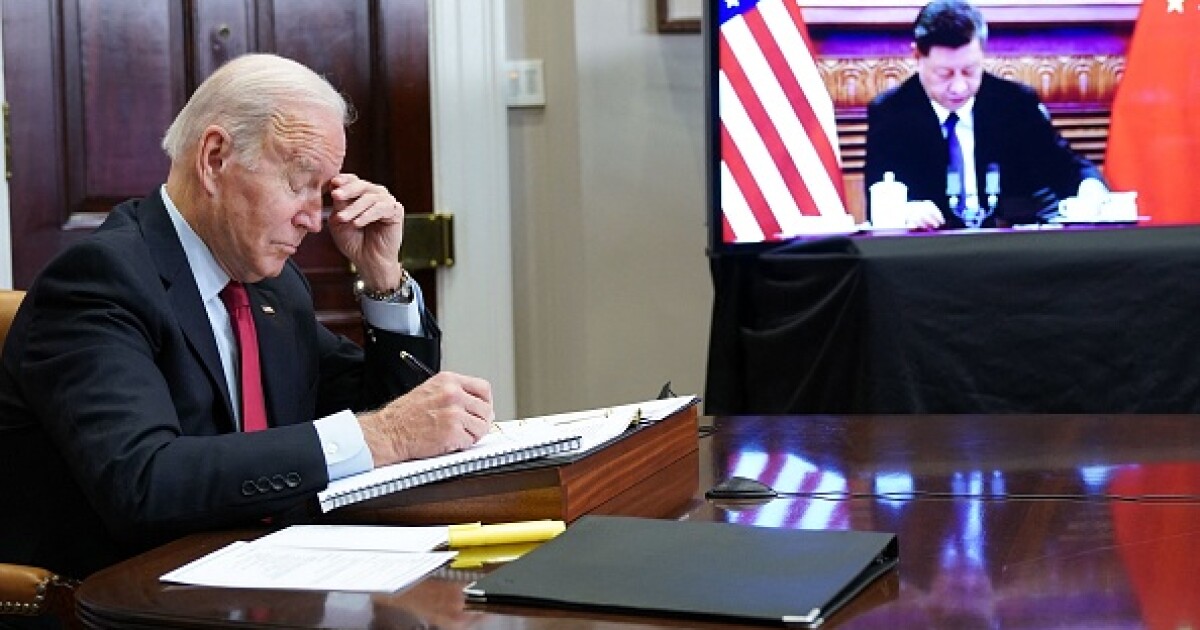

Democrats are increasingly joining Republicans in blaming China for helping fuel the fentanyl crisis blighting the United States.
Sen. Bob Menendez (D-NJ), chairman of the Foreign Relations Committee, said in a hearing earlier this month that the U.S. needed to “use every foreign policy tool” to stop fentanyl from flowing in, which included asking Mexico to do more to crack down on cartels, and “it also means confronting China.”
GOP SAYS BIDEN MUST DO MORE TO COMBAT CHINESE SUPPORT FOR RUSSIA IN UKRAINE WAR
Menendez added: “I doubt [Chinese President] Xi Jinping cares about his chemical and pharmaceutical industry supplying the Mexican cartels that are flooding the United States with fentanyl.”
Sen. James Risch (R-ID), the ranking member on the committee, noted: “China is the primary source of illicit fentanyl and synthetic opioid precursors that the Mexican cartels are using to manufacture lethal drugs.”
He said: “We have a serious threat at the border, and the president needs to be serious about addressing [it]. The Chinese government’s tacit endorsement of this massive drug trade is a huge issue.”
Drug Enforcement Agency leader Anne Milgram said combating the problem meant dealing with Mexico and China, “whether it’s Chinese chemical companies or Chinese nationals, chemical brokers or illicit finance people operating in China, U.S. or Mexico.”
The Washington Examiner has previously reported on how Chinese money launderers and fentanyl-makers have
gone into business with Mexican cartels
, making billions pushing fentanyl across the U.S. border.
The Trump administration pressured Xi in 2019 to outlaw the production of fentanyl, but labs in China shifted to manufacturing the precursor ingredients for the drug instead, and
Chinese partnerships with drug traffickers in Mexico have expanded
.
The Centers for Disease Control and Prevention
reported
that more than 107,600 Americans died of drug overdoses in 2021. More than 71,200 of those overdose deaths involved synthetic opioids, mainly fentanyl.
In January, before his meeting with his Chinese counterpart was canceled due to the spy balloon fiasco, Rep. David Trone (D-MD) sent a letter to Secretary of State Antony Blinken urging him to “prioritize in your discussions the PRC’s role in illicit synthetic opioid trafficking.”
Trone told Blinken: “Synthetic opioid trafficking is an area where even a few meaningful steps from the PRC can play a significant role in combating this worsening epidemic.”
Pointing to the link between Chinese chemical development and the Mexican cartels, Sen. Joni Ernst (R-IA) told CBS News this month: “I think that the Chinese are intentionally poisoning America. … And of course, the Chinese don’t want to assist us with this.”
Sen. Marco Rubio (R-FL) and 14 co-sponsors reintroduced the Felony Murder for Deadly Fentanyl Distribution Act this month, a bill that would make the distribution of fentanyl, resulting in death, punishable by federal felony murder charges.
China was not designated a “Major Illicit Drug Producing Country” in 2022, a decision Rubio lambasted as “outrageous.”
The Chinese government, for their part, has sought to blame the U.S. as the sole culprit of the drug crisis, often adopting something of a mocking tone.
Foreign Ministry spokeswoman Hua Chunying tweeted a document this month on “Ten Reasons Why China Won’t Become the U.S.,” with the fourth reason being “China does not allow the drug problem to haunt the nation and kill 100,000+ per year.”
The Chinese Foreign Ministry also published a “Drug Abuse in the United States” document this month where “fentanyl” was only mentioned once, and there was no mention of China’s role in producing fentanyl precursor materials sent to Mexican cartels.
The Chinese propaganda outlet Global Times
wrote a story in response: “America’s drug abuse problem — a long-existing thorn in the side of US society — has grown more serious in recent years in the country along with an increasing number of young people turning to drugs due to dwindling economic opportunities and the apparent death of the so-called ‘American Dream,’ analysts said.”
In August last year, China
suspended its counternarcotics cooperation with the United States
in retaliation for then-House Speaker Nancy Pelosi’s decision to visit Taiwan despite the objections of the Beijing government.
Meanwhile in 2020, the Commerce Department sanctioned China’s Ministry of Public Security’s Institute of Forensic Science for being “complicit in human rights violations and abuses committed in China’s campaign of repression, mass arbitrary detention, forced labor and high-technology surveillance” against Muslim Uyghurs and other minorities in Xinjiang.
Beijing has tried to use that blacklisting as an excuse for not cooperating with the U.S.
CLICK HERE TO READ MORE FROM THE WASHINGTON EXAMINER
Chinese Foreign Ministry spokeswoman Mao Ning claimed earlier this month that “China’s counternarcotics capacity has been seriously hampered by U.S. sanctions on relevant Chinese institutions.”
The Biden administration pushed back on that during a Senate hearing later that month.






